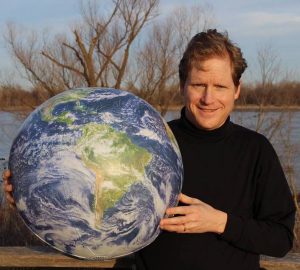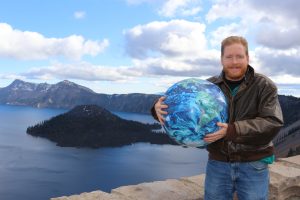
What’s your story?
This is the question I want you to think about right now, especially next time to chat with a family, friend, neighbor, co-worker, or a total stranger.
What event happened in your life that made you decide to act on climate change and led you to attend this Citizens’ Climate Lobby (CCL) Greater Pacific Northwest regional conference?
(This blog is the text of the speech from that conference. Here is a video of that speech)
Your story is vital for engaging people on climate change.
George Marshall, the British climate communicator not to be mistaken for the American World War II General, stated on the April 2015 CCL monthly international call:
“Science is not what persuades people. It’s the stories they hear from the people they trust.”
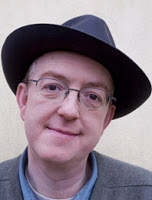
George Marshall, a British climate communications specialist and writer. Image source: climateconviction.org
What’s your story?
This is something we work on and practice at the Climate Reality Trainings. Who here has attended one of those trainings?
Like getting involved with CCL, I highly recommend attending a Climate Reality Training which are led by former Vice President Al Gore. He shares his climate change presentation and teaches you how to give it. It can help you take your climate activism to a new level.
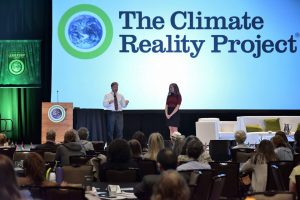
Brian Ettling and Maddie Adkins speaking at the Climate Reality Project Bellevue WA Training, June 29, 2017.
A friend from Climate Reality, Eric Torres shared the story in 2007 that someone he mentored told him that it was not enough just to just give Al Gore’s climate change talk. He wanted to start an organization to lobby Congress on climate change. Eric advised this Climate Reality Leader to go for it. Do you know who that Climate Reality Leader was?
CCL founder Marshall Saunders.
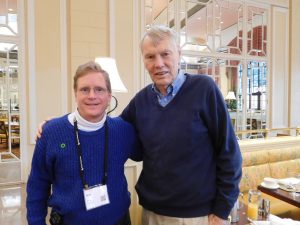
Brian Ettling with Citizens’ Climate Lobby Founder, Marshall Saunders
Anyway, we practice really hard on our personal story telling and these trainings so we can more effectively communicate about climate change.
I was a mentor at the Climate Reality Training in Houston Texas in August 2016. We were going around the table practicing our stories. One older woman, Jane Stackhouse from Portland OR, really started biting her lip and you could see she was getting irritated. When it was her turn to practice her story, my friend Jane yelled at me:
‘Brian, I don’t have a story! I just saw An Inconvenient Truth in 2006. I then decided to reduce my driving and ride my bike!’
I then responded: “That’s it! That’s your story! You got it!”
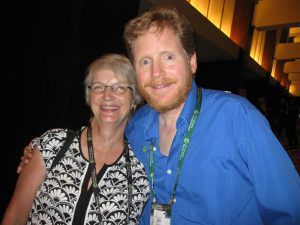
Climate Reality Leader Jane Stackhouse and Brian Ettling
Everyone here has a great story of giving involved in the climate movement, whether you are a mother, a truck driver, a business owner, a soldier, a student, etc.
What’s my story?
I was a seasonal park ranger in Everglades National Park, Florida and Crater Lake National Park, Oregon for the past 25 years. Around 20 years ago, I started giving ranger talks. People expect park rangers to know everything, don’t you?
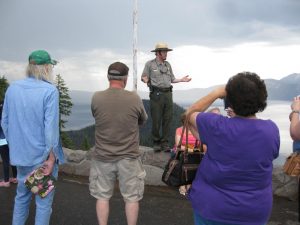
Ranger Brian Ettling giving a ranger talk at Crater Lake National Park July 2015.
Visitors in the Everglades started asking me about this global warming thing. I knew nothing about it. Visitors hate it when a park ranger tells you: ‘I don’t know!’
Thus, like any teacher, I had to spend my spare time reading about it. It really scared me. I learned that sea level rose 8 inches in the 20th century, which is 4 times more it had risen in previous centuries. This century, due to melting of glacial ice in Greenland and Antarctica, sea level could easily rise over 3 feet. That would spell doom for the Everglades because the highest point on the park road is only about 3 feet above sea level. Here I was on my off days canoeing to see the alligators, crocodiles, manatees, dolphins and birds in the Everglades. It made me sad to think this precious wildlife habitat could be lost forever.
Thus, I quit my winter job in Everglades National Park in 2008, exactly 10 years ago this April, to spend my winters in my hometown of St. Louis, Missouri to organize on climate change. This eventually led me to get involved with Citizens’ Climate Lobby 6 years ago this May.
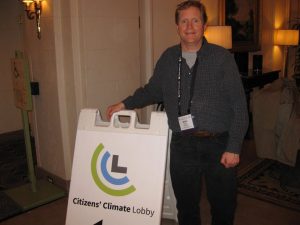
What’s your story?
Think about your story, but also think about closely listening to other people’s stories.
To become a good storyteller you must also become a good listener. Listen closely to your listener’s story to find common ground. As CCL tries to teach us with lobbying: being better listeners than talkers. Being more interested than interesting.
Roberta D’Amico, organizer of this conference, and I both come from a National Park Service background. Those of us who lead ranger talks in national parks are called Park Interpreters. Basically, we are interpreting the national park, monument, battlefield, or historical site for you.
What is our goal in giving our ranger talks? We want to find a way to inspire our audience to care and protect these national treasures. We do this with an interpretive technique called universal concepts. These are concepts that all human beings have in common on a basic level.
Universal concepts include items in our talks such as love, patriotism, security, determination, courage, and victory over incredible odds, obstacles and opposition.
For the past 12 years at Crater Lake National Park, I have given a ranger talk about our park founder William Gladstone Steel. In May 1870, William, as a Kansas school boy, he read a newspaper wrapped around his lunch about the discovery of Crater Lake. His family moved to Portland, Oregon (yeah) in 1872 and he made a mental note to see Crater Lake someday.
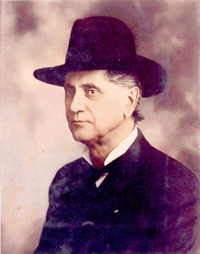
William Gladstone Steel
Image Source: wikipedia.org
In August 1885, He set out to see Crater Lake. He took the train down from Portland, Oregon to Medford, Oregon. It then took him three days to reach the lake. He walked 20 miles, arriving on August 15, 1885.
For Will Steel, it was love at first sight to see Crater Lake. He made it his life’s mission to make it a national park. Keep in mind in 1885, there was Yellowstone. That was it.
It took him 17 years to make this dream come true. He made numerous trips to Washington D.C. to meet with members of Congress. Keep in mind in 1886 there was no Portland International Airport. He had to take many train trips across the continent to Washington D.C. He became such a fixture a the capitol that Senators and Congressmen would duck around doors and hallways to avoid him. They probably told him: ‘Will Steel. Get lost! We are not turning your little lake into a national park.’
Will Steel would not give up. At one point, he said, “I got licked so much that I learned to like it.”
Because of his steel determination, Congress finally made Crater Lake a national park on May 22, 1902.
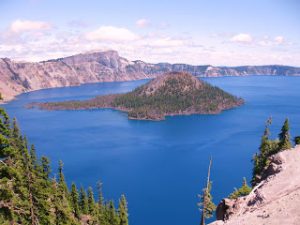
Image Source: Brian Ettling
Think of this next time you lobby your member of Congress on climate change. It took 17 years. That is the same amount of time to raise a child. William Steel won because he loved Crater Lake so deeply.
That’s his story.
What’s your story?
This is how we are going to win on climate change: by sharing our stories. With our family, with our friends, with our neighbors, our co-workers, and with each other here tonight, sharing our personal story on climate change.
Never underestimate how valuable your personal story is.
As master storyteller and author Andy Goodman likes to say:
“Nobody ever marched on Washington because of a pie chart. Numbers numb. Jargon jars. Stories get stored. And when you change the story, you can change the world.”
Now I challenge each one of you. Go forth and share your story.
